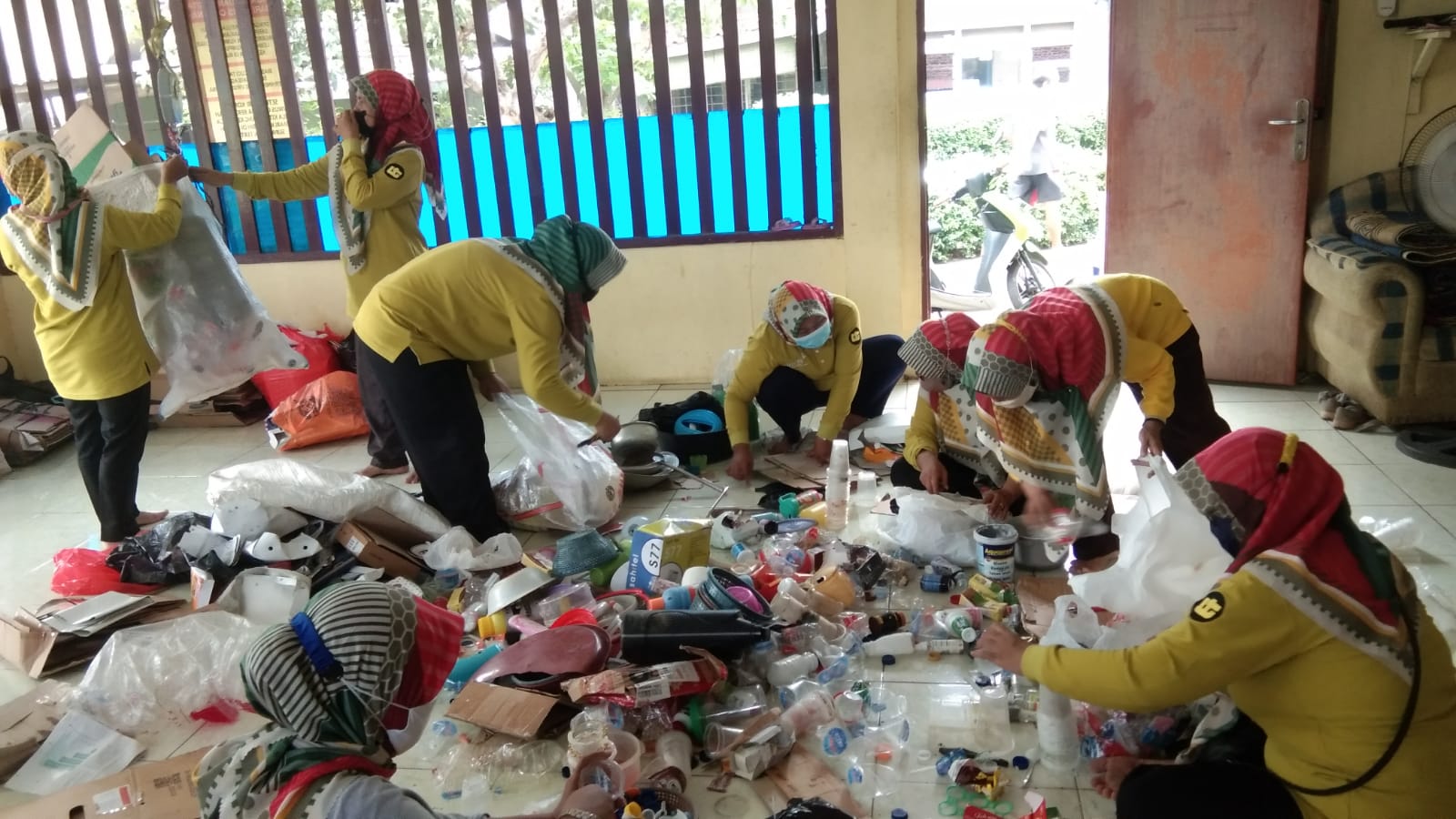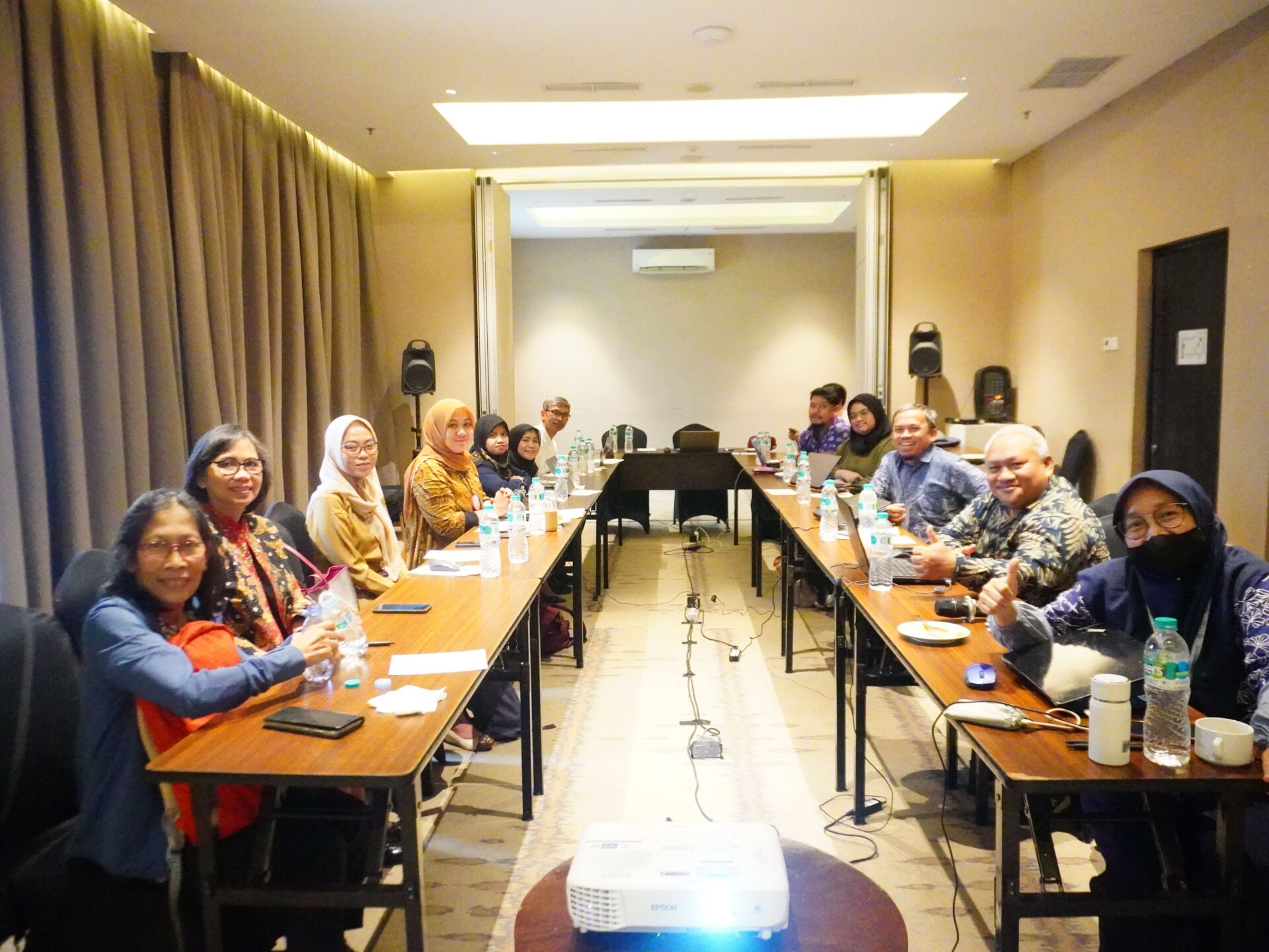 Photo Source: Ekuatorial.com
Photo Source: Ekuatorial.com
As of 2023, the data of the National Waste Management Information System (SIPSN) the Ministry of Environment and Forestry (MoEF) said the amount of waste generated by Indonesia reached 38.79 million tons. As much as 50.79% of the waste generated is household waste. However, not all waste generation can be managed properly. Only 24.10 million tons (62.13%) can be managed while the rest is not yet well managed.
Ironically, the local budget for waste management is only 0.64% of the APBD portion. The current trend is that the handling of waste in the area has not been managed comprehensively, it is still a matter of the Department of Environment. In fact, it is necessary to involve other potential agencies and community empowerment so that waste management can be more efficient.
PATTIRO assesses that the existing waste management policy is still gender neutral. In practice, there is an inequality of roles between women and men. Women often get roles for menial jobs such as picking up garbage, sweeping, and sorting garbage, while men get a higher role, namely managing waste which is often assisted by machines and in managerial sections that have power as decision makers. The distribution of roles also affects the remuneration of waste management workers. Women tend to earn lower wages than men because they are considered to do side jobs.
“Women have not received fair and equal economic benefits in waste management,” said Diah, Program Officer of PATTIRO.
At the household level, waste handling tends to be left to women. This was confirmed by Rima Yulianti Suharin, level I stylist, SUPD I of the Ministry of Home Affairs (Kemendagri). In her presentation, she said that women are the main actors in household waste management so that women come into direct contact with various types of household waste. “So far, only mothers are concerned about household waste management, fathers are not,” said Rima.
Gender mainstreaming in waste management is important to strengthen participation and equal distribution of roles between men and women so that waste management can be more effective and efficient. Eko Novi Ariyanti Rahayu Damayanti, assistant deputy for Gender Equality Social and Cultural Affairs, Ministry of women empowerment and Child Protection (KPPPA), said gender mainstreaming in planning and budgeting for waste management can be seen through budget tagging in the APBD for climate change mitigation and adaptation. ” Since 2021, PUG revitalization has been initiated to optimize achievements in gender mainstreaming, ” added Eko Novi.
 Photo: FGD location determination assisted by Regional Planning and budgeting for Gender-Responsive Marine Waste Management, Jakarta (2024)
Photo: FGD location determination assisted by Regional Planning and budgeting for Gender-Responsive Marine Waste Management, Jakarta (2024)
Ironically, it is not uncommon for piles of poorly managed garbage to dock into the sea. As much as 1.29 million tons of unmanaged plastic waste leaked into the ocean. Aryo Sahid Sujiwo, from the National Coordination Team for handling marine waste (TKNPSL) explained that based on data released by TKNPSL, the total generation of plastic waste in the sea—calculated from leaking plastic waste from land and activities in the ocean—per 2023 reached 359,061 tons. Although this number has continued to decline over the past three years (2021-2023), plastic pollution will have a major impact on marine ecosystems, especially if it is associated with climate change.
The government needs to take serious steps in managing marine waste, one of which is by mainstreaming gender in marine waste management. PATTIRO through the support of the Asian Development Bank (ADB) will implement technical assistance for local governments related to gender mainstreaming in marine waste management. On Monday (23/09/2024), PATTIRO held a Focus Group Discussion to determine areas for technical assistance programs based on recommendations from relevant stakeholders, including the Ministry of Home Affairs, KLHK, KPPPA, and TKNPSL.




